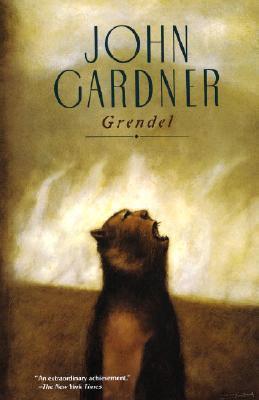TL;DR
John Gardner's 'Grendel' retells the classic Beowulf tale from the monster's perspective, exploring themes of existence, meaning, and the nature of evil in a profound and speculative narrative.
What is Grendel about
'Grendel' is a reimagining of the Beowulf mythos, focusing on the perspective of Grendel, the infamous creature known for terrorizing the Danes. John Gardner captures the internal struggles of Grendel as he grapples with feelings of isolation, misunderstanding, and a longing for connection. The novel dives into philosophical inquiries about existence and the nature of good and evil, illustrating how Grendel perceives the world around him and the humans he despises yet yearns to understand. Gardner's work challenges readers to reflect on how narratives shape our understanding of identity and morality, making Grendel not just a monster but a complex character seeking meaning in a chaotic universe.
Grendel 8 Key Takeaways
Perspective Shift
Gardner's narrative transforms Grendel from a mere villain into a sympathetic character, prompting readers to reconsider their preconceived notions about monsters and humanity.
Existential Inquiry
The novel delves into existential themes, questioning the nature of existence, purpose, and the human condition through Grendel's reflections on life.
Conflict of Narratives
Grendel's struggle against the different narratives imposed on him mirrors the broader human experience of confronting conflicting truths in their lives.
Isolation and Connection
Grendel's isolation in the darkness highlights the human desire for connection, as he observes the joy of humans while feeling trapped in his own misery.
Nature of Evil
Gardner explores the roots of Grendel's perceived evil, suggesting that it arises not only from his lineage but also from his reactions to the world around him.
Stream of Consciousness Style
The narrative employs a stream of consciousness technique that immerses readers into Grendel's mind, providing an intimate view of his thoughts and emotions.
Philosophical Undertones
Gardner infuses philosophical questioning throughout the story, encouraging readers to ponder deep existential dilemmas alongside Grendel.
Literary Allusions
The text is rich with allusions to various philosophical works and literary traditions, deepening the thematic resonance of Grendel's quest for meaning.
Grendel Videos
Grendel By John Gardner | Book Summary | - YouTube
Top Grendel Quotes
- 'The world is all that is the case.'
- 'I create the whole universe, blink by blink.'
- 'I am Grendel, the one who is not.'
Who should read Grendel?
'Grendel' is ideal for those interested in literary reinterpretations, philosophical explorations of existence, and character-driven narratives. Readers will find inspiration and insight into the complexities of identity and the narratives that define us.
Grendel Best Reviews
- 'Grendel' is a masterful exploration of the human condition through the eyes of a misunderstood monster, challenging the traditional narrative of good versus evil.' – The New York Times.
- John Gardner's 'Grendel' is a poignant reflection on the nature of existence, elevating the monster's plight into a profound philosophical discourse.' – The Guardian.
